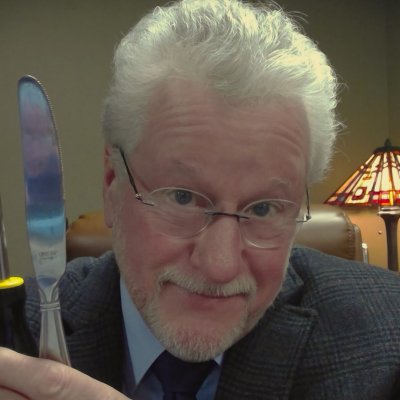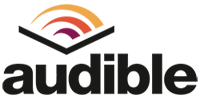I know that you have done this: there was a screw that needed to be tightened in your home, and you couldn’t find the screwdriver. So instead, you went to the kitchen drawer and found a butter knife. It worked, but it didn’t work very well. In fact, you probably bent and damaged the butter knife.
Why is it that we try to get things done with tools that were never meant to do the things we’re trying to get them to do. I often see this with people with large 401(k)s. They will say this is my 401(k) plan, this is my IRA plan, or this is my pension plan, but none of these things are actually plans. They are just accounts. If you sit down with an attorney, you will realize very quickly that these things are not plans. In fact, attorneys often will sit down with people to figure out how to fix these accounts so they work with an actual estate plan, or you might work with a financial planner to determine how to use a 401(k) or IRA accounts to establish a retirement plan. A plan is a well-thought-out strategy. All of these “plans” are just accounts to hold money.
Today, I want to talk about using the correct tools in your life, like a screwdriver as opposed to trying to get a butter knife to work. In our office, we actually have a unique screwdriver. I never know what I might need to tighten, and this screwdriver has exchangeable heads. It can be a Phillips or it can be a flat head, etc. It can become different tools. Just like our multi-tool screwdriver, the life insurance asset can accomplish multiple different tasks.
When you are young and have children, you have responsibilities. You likely have debt, and you likely have income that would need to be replaced if something happened to you. It’s very important that you have life insurance to be able to replace your maximum human life value. The death benefit is important, but there are some other things inside of a life insurance policy that can provide more planning.
For instance, when your life insurance is put together correctly and you become disabled, your life insurance could potentially be paid for by the insurance company for the rest of your life. With a permanent whole life insurance policy, money continues to be placed into the policy by the life insurance company. That money is going to build cash reserves that will be available for opportunities or emergencies along the way for as long as you live. It's like disability insurance that replaces the income you would have earned.
A permanent whole life insurance policy can help you if you become terminally ill. In the majority of policies, if you become terminally ill, you can get up to ½ of the death benefits prior to your death. I like to call that the “Make a Dream Foundation” clause of your life insurance policy. This money can be used for whatever you want. You can use it to live your life with dignity or use it as additional medical coverage to get things that your medial insurance would never pay for.
Permanent whole life insurance policies, in many cases, also have critical illness provisions that can help you with long-term care needs. Regardless of your age, if you cannot live in your home or take care of yourself, you can use some of your death benefits to help you live a life with dignity.
Cash within a permanent whole life insurance policy is also available for opportunities that come your way. Experience has taught me: people with money never have to search out opportunities. If you have money, opportunities will search you out. I can’t tell you how many times I have heard someone say, “if I only had the money, I would have been able to invest in this XYZ opportunity that came along.” Instead, that money was frozen. It was locked up in a 401(k) that they could not get their hands on until they were 59 ½. They say it’s your money, but you don’t really have access to it.
Here's another benefit. Emergencies happen all the time. You may need a new roof because of wind damage and the insurance company wouldn’t pay the full replacement value. Your furnace or air conditioner needs to be replaced. You’re in an automobile accident and there’s not enough money to replace your car. You lost your job. They’re downsizing your company. What do you do? Where do you go? Without penalties, where do you go without tax repercussions? Where are you storing your safe money? People often put their safe money into money market funds, certificates of deposit, etc., with rates of return around 2%-4 ½% and these funds are often taxable. They usually have penalties for early withdrawal. They’re not totally available, but they are places where people are looking to store safe money.
I look at these options and wonder why people are establishing “life insurance” in money market accounts, but without the death benefit, because that is basically what those safe investment vehicles are. They’re not even really investments. Let’s call them places to store your safe money because investments have the risk of going up or down. Through a permanent whole life insurance policy, you can have a place to store your safe money, with modest rates of return, and get all of the other benefits of a life insurance policy.
When you need a tool to put together your retirement plan, do you grab a tool that wasn’t meant to be used that way, like a 401(k)? That’s like using a butter knife. Are you just trying to take care of some estate planning? That’s like using a screwdriver. Or, do you want a tool with multiple different options and benefits like a permanent whole life insurance policy? Some people, regardless of what they’re trying to do, will simply use a hammer and beat the crap out of things to make it do what they want it to do. Is that ever successful?
If you would like to learn more about the life insurance asset, read or listen to my book Investment’s Don’t Hug: Embracing the Life Insurance Asset. It has great educational stories that you can write notes or highlight in. It’s available on Amazon, Audible, iTunes, etc. Purchase my book for yourself, family, or friends. This is a great gift for family members to help them learn how to improve their lives. If you want more information, explore our website at www.investmentsdonthug.com.



